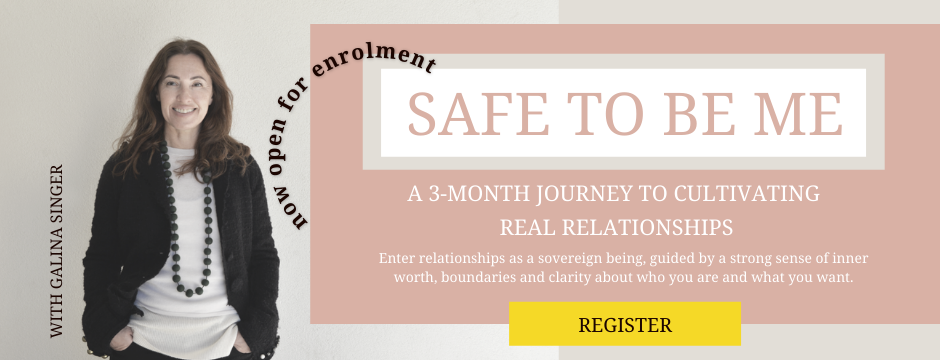Which parts of yourself are you trying to divorce?
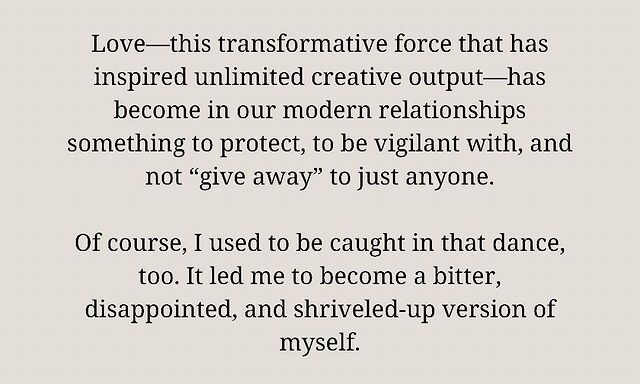
A wife in a decades-long marriage and a mother of three children, I was expected to be thriving in the stability of a love supply that such an arrangement was supposed to provide me with.
Except, contrary to this popular myth, I was not thriving at all. I got to the point of complete and utter exhaustion, depression, and apathy. The love that I worked so hard on “getting”—mostly through self-sacrifice and extinguishing of my own desires and needs for the benefit of others—was not forthcoming in any lasting or sustainable way.
It took me many years of unlearning what I thought I knew about love and relationships to understand that love is not something we get from others.
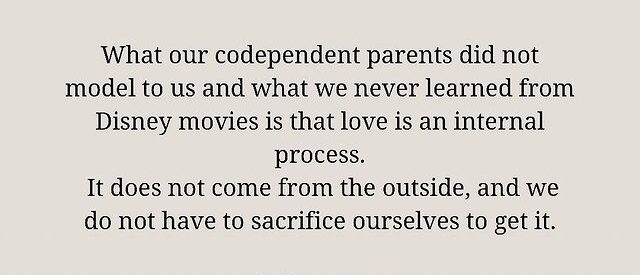
I spent my life hiding who I am in order to get love.
Looking outside of myself for clues to understand how I need to be in order to please, gain acceptance and approval from others.
I followed all the conditioned and prescribed rules of behavior: what’s appropriate, what is not, what’s okay to need, what’s not okay to need, this is how I must give, this is how I must be.
Until I disconnected from myself so completely that I no longer knew who I was, what I liked, or what love even feels like.
All I could feel was deep inner pain.
My voyage since I’ve hit rock bottom has been one of remembering.
Remembering and re-integrating all the fractured parts of who I am, all that I’ve suppressed when begging for love.
What have I learned since? That love is an internal process. It does not come from the outside, and we do not have to sacrifice ourselves to get it.
In fact, the more we remember of ourselves back to life, the more love becomes available.
Which parts of yourself are you trying to divorce?
Facing yourself is uncomfortable.
No, it’s worse – it’s unbearable!
It’s easier to project our pain on others, blame them for our feelings, our discomfort, our predicament, wishing they’d change.
And when they don’t change so that we feel better, we leave. We cancel. We block. We run.
Fight/Flight/Freeze
And I wanted to run away on numerous occasions over the last eight years of my awakening.
When my illusions were shattered and I bumped heads with the real person I married, the discomfort was so severe that all I wanted was to run.
I blamed him for all the ways my life was not fitting into the figment of my imagination.
I was trying to run away from myself. From the way it felt to be me.
We are starting to wake up to the fact that our life is a mirror of our inner world. This means if we want to change anything – we have to start with ourselves.
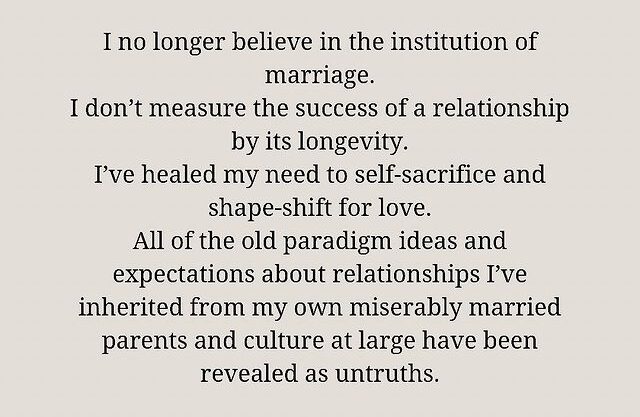
Today I know that the elusive love that I spent my life seeking will not be delivered by anyone on the outside.
My love is mine, resides within me, and access to it is in my own control.
My happiness is a product of my own physical, psychological, and emotional well-being.
Relationships are not meant to make us happy or assure any kind of permanence or security but are laboratories for experimentation, continued self-exploration, and growth.
The relationship we all need to master is our relationship with ourselves. It is the foundation for the health of all of our other relationships.
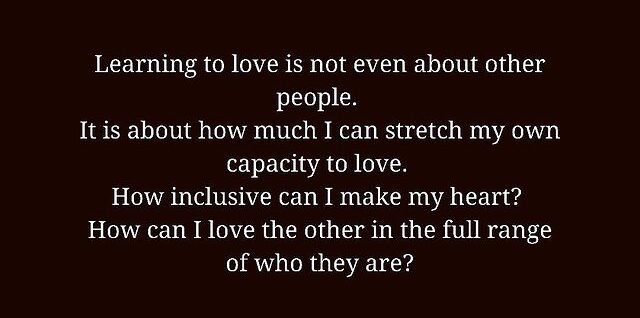
Learning to love is the hardest thing I’ve ever had to do.
It started with learning to accept all of me: the good, the bad, and the ugly.
When I learned compassion toward the unsavory, the hard-to-look-at parts of myself, I learned to love my children.
And now—after more than 30 years of life together—I am learning to love my husband.
It does not mean that I want to fix my marriage. I really don’t care about that.
My wish is to learn to love in such a way that the evolution in the structure of our relationship or any changes that each of us may still undergo will not kill the love.
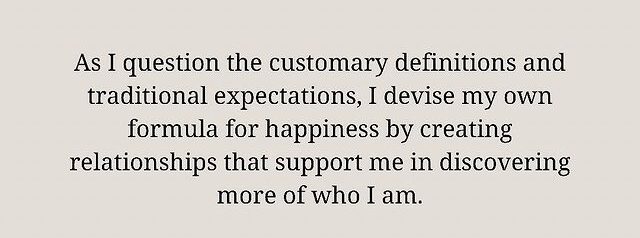
For me, it is no longer about staying or leaving.
I believe that we have more choices for relationships than what we’ve inherited from the old paradigm.
As I question the customary definitions and traditional expectations, I devise my own formula for happiness by creating relationships that support me in discovering more of who I am.
The only way I think about my marriage now is by checking with myself daily: do I still choose this?
The future is undecided.
The awakening is not an individual process, it’s an evolutionary process
We often talk about awakening as an individual process. In my latest video, I talk about relationships as containers for awakening pressures. For example, my first child was a very strong impulse toward change and awakening from my conditioning and inherited patterns, but I was not able to recognize that and resisted for many years. This resistance to evolutionary forces is at the source of so much of our suffering. When I could no longer resist and the process of transformation has begun, I then became the agent of change within my own family, carrying it back to my children and my husband, as well as all other relationships. So the process of awakening is greater than our individual lives. We become participants in greater evolutionary cycles.
YOU DESERVE TO FEEL SAFE IN YOUR RELATIONSHIPS
